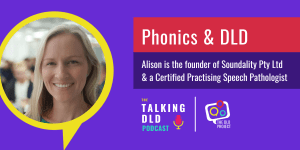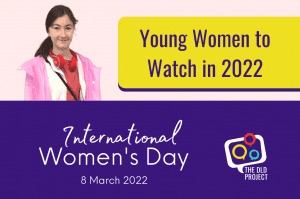
IDLDRC 2023 IS BROUGHT TO YOU BY PLATINUM SPONSOR
Watching the 40+ on demand conference videos is the perfect opportunity to keep up to date with current DLD research from around the world. It’s NEVER too late to register for IDLDRC and support DLD research.
ACCESS IDLDRC FROM ANYWHERE IN THE WORLD
The DLD Project hosted the 3rd annual International Developmental Language Disorder Research Conference (IDLDRC) from 11-13 September 2023, providing a platform to share global research about Developmental Language Disorder (DLD). The 40+ IDLDRC presentations are available as recordings hosted on demand via our virtual online learning platform. Importantly, profits from IDLDRC ticket sales go towards funding a DLD Research Grant.
1 Month Access Pass
- 30 Days Access to IDLDRC Videos
- 40+ Research Presentations
- Connect with the Researchers
- On Demand 24/7 Access
12 Month Access Pass
- 365 Days Access to IDLDRC Videos
- 40+ Research Presentations
- Connect with the Researchers
- On Demand 24/7 Access
“Thank you for another wonderful array of research presentations! They are so helpful and instructive for me to see how I can improve my practise with primary school aged children with Developmental Language Disorder.”
Anna – Speech & Language Pathologist, Department for Education, Children & Young people
2023 IDLDRC KEYNOTES
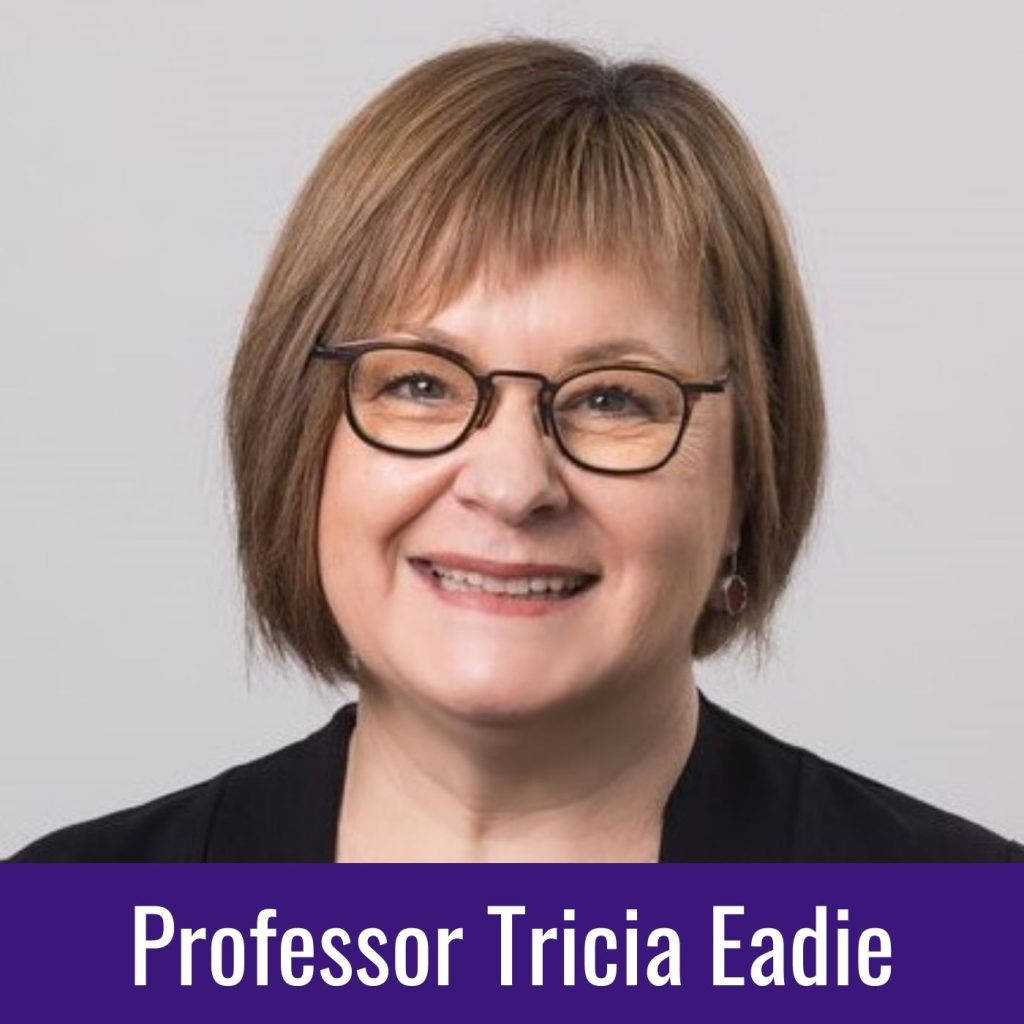
DAY 1 KEYNOTE: CONNECTED, COLLABORATIVE, AND IN THE COMMUNITY: HOW WE OPTIMISE ALL CHILDREN’S LANGUAGE LEARNING.
When children start school, they come with vastly different learning experiences, influenced by their early home environment, the community in which they live, and the early childhood education and care programs they have participated in. The evidence regarding these early developmental differences provides a comprehensive set of factors that both contribute to early language vulnerability and the potential targets for tailored early interventions.
Connected and collaborative health, community, and early childhood education services embedded in communities, provide the best model for equity of access to all children, wherever they live and whatever their circumstances.
In this presentation Professor Eadie will i) discuss the importance of continuous, collaborative, and cumulative surveillance to document individual and contextual factors that impact children’s language development; and ii) provide evidence of the high-quality early childhood learning experiences that have a significant impact on children’s language learning, particularly in the very early years and especially for vulnerable children.
PROFESSOR TRICIA EADIE BIO
Professor Tricia Eadie is the Director of the REEaCh Centre (Research in Effective Education in Early Childhood) in the Graduate School of Education at the University of Melbourne. Tricia’s research is characterised by multi‐disciplinary efforts to understand young children’s developmental pathways during preschool through to school and the evidence‐based learning experiences and interactions which most influence children’s outcomes.
Tricia has been a Chief Investigator with the Early Language in Victoria Study since its inception in 2003 and is leading the current ELVS project focused on transition from school and post-education outcomes. Tricia has led longitudinal projects that cross the boundaries of education and health with a focus on universal interventions which enable optimal outcomes for all children irrespective of their circumstances. This research has contributed to understanding the role early childhood education can play in addressing equity gaps in Australian communities.
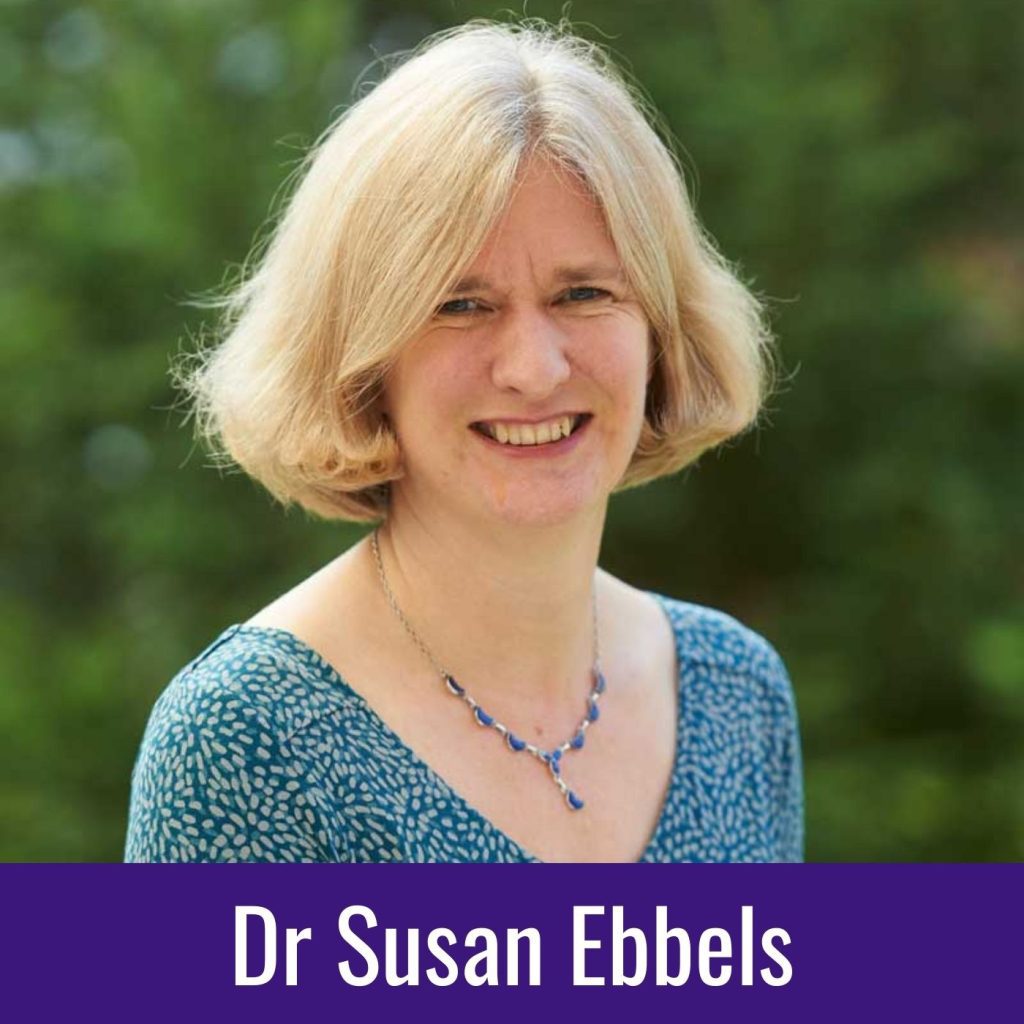
DAY 2 KEYNOTE: MAXIMISING THE EFFECTIVENESS AND EFFICIENCY OF INDIVIDUALISED INTERVENTION FOR VOCABULARY AND GRAMMAR.
Language intervention requires commitment from children, families, schools, clinicians and funders. Therefore, maximising intervention effectiveness and efficiency is vital. This involves maximising progress while minimising time. Time-related aspects of intervention delivery might be centrally determined, but clinicians generally have control over intervention targets, steps, techniques and within session dosage.
Dr Ebbels will present her teams intervention studies for vocabulary and grammar with young people with DLD, particularly considering the potential influence of intervention targets, techniques, dosage and time in intervention on outcomes and generalisation. The keynote will consider which aspects of intervention appear to be the more important and where we can be more flexible.
DR SUSAN EBBELS BIO
Dr Susan Ebbels is a Speech & Language Therapist and Director of Moor House Research and Training Institute at Moor House School & College, Surrey, UK, a specialist school for children with Developmental Language Disorder (DLD) aged 7-19. She is on the editorial boards of International Journal of Language and Communication Disorders and Child Language Teaching and Therapy. She has an honorary lectureship at UCL and is also a specialist advisor for Royal College of Speech and Language Therapists.
She is passionate about the need for evidence-based practice and has carried out and coordinated many intervention studies on a range of areas, but with a particular focus on improving the comprehension and production of grammar in children with language disorders using her SHAPE CODINGTM system. She delivers regular courses both on the SHAPE CODINGTM system and on the current evidence base for school-aged children with Developmental Language Disorder (DLD).
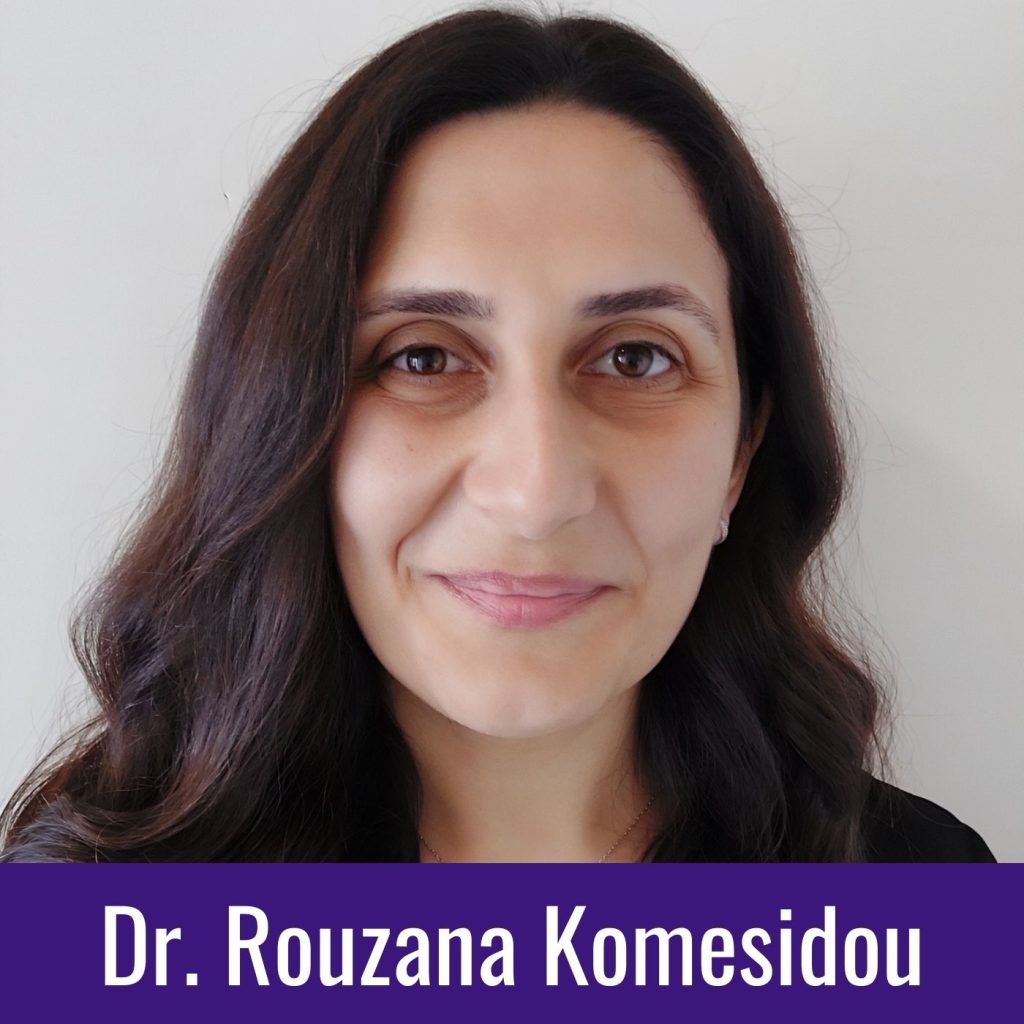
DAY 3 KEYNOTE: BRIDGING RESEARCH AND PRACTICE FOR DEVELOPMENTAL LANGUAGE DISORDER: LESSONS FROM IMPLEMENTATION SCIENCE
There is an immense gap between what we know from research and what happens in educational and clinical practice, leading to delays and inefficiencies in service delivery, inequities, and poor outcomes in people with developmental language disorder. Implementation science aims to address this gap by promoting the systematic uptake of evidence-based practices in routine settings. My keynote presentation will focus on important lessons from implementation science, such as designing research studies with implementation in mind, understanding educational and clinical contexts, and building capacity for local ownership. Implementation science holds great promise for transforming systems worldwide and supporting access to services that meet the needs and expectations of people with developmental language disorder.
DR ROUZANA KOMESIDOU BIO
Dr. Rouzana Komesidou is an implementation scientist, a consultant, and the founder of Mosinian Research & Consultancy, located in Cyprus. Her research aims to create the necessary conditions to implement and sustain evidence-based practices for children with communication disorders, including developmental language disorder.
She has published in the areas of early screening, language intervention, interprofessional collaboration, and implementation science. As a consultant, she helps clients around the world use implementation science to improve the quality of educational and clinical services.
Dr. Komesidou has recently created Action for DLD, a community-based initiative that seeks to raise awareness and educate about DLD in Cyprus and Greece. You can connect with her via her website (www.mosinian.com) or social media @rkomesidou.


